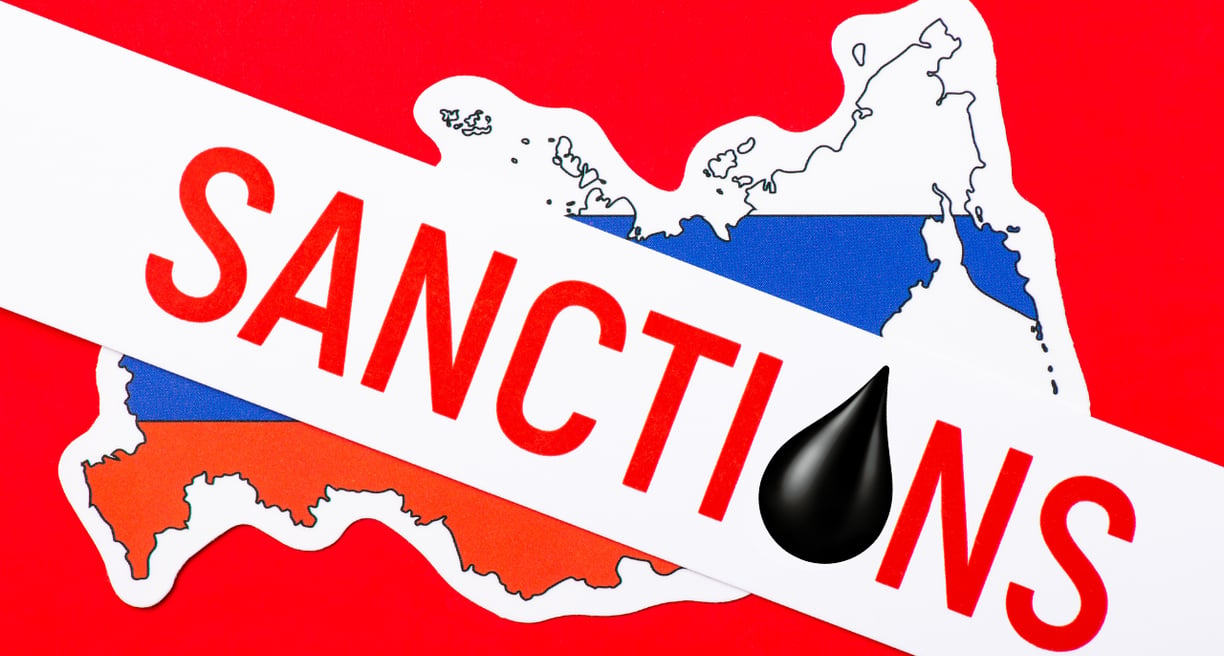The Impact of U.S. Crude Oil Sanctions on Russia: A Geopolitical Analysis


In the wake of geopolitical tensions, crude oil has often been at the center of strategic economic measures. Among the most significant actions in recent years has been the United States' sanctions on Russia's crude oil exports. Designed to weaken Russia's energy-driven economy and influence, these sanctions have had far-reaching implications for global energy markets, diplomacy, and economic stability.
In this blog, we’ll explore the origins, motivations, and consequences of these sanctions, as well as their broader implications for the energy landscape.
Why the U.S. Sanctioned Russian Crude Oil
Geopolitical Tensions
The U.S. sanctions on Russian crude oil were largely a response to Russia’s military actions, including its invasion of Ukraine in 2022. As one of the world’s largest oil producers, Russia relies heavily on energy exports to fuel its economy. By targeting this critical sector, the U.S. aimed to:Curtail Russia's revenue streams used to fund its military operations.
Exert pressure on the Russian government to de-escalate its aggression.
Economic Isolation
Beyond crude oil, these sanctions were part of a broader strategy to isolate Russia from the global economy. Restrictions on technology transfers, financial systems, and trade partnerships were designed to weaken Russia’s economic stability and influence.
How the Sanctions Were Implemented
The U.S. imposed sanctions through mechanisms such as:
Bans on Russian Oil Imports: In March 2022, the Biden administration announced a complete ban on Russian oil, liquefied natural gas (LNG), and coal imports into the United States.
Price Caps on Russian Oil Exports: In coordination with allies like the European Union and G7 nations, the U.S. introduced price caps on Russian oil exports to limit profits while keeping global oil supplies stable.
Sanctions on Russian Energy Companies: Major Russian energy firms, including Gazprom and Rosneft, faced restrictions on trade and investment.
The Ripple Effects on Global Energy Markets
The sanctions on Russia's crude oil exports sent shockwaves through global energy markets, leading to:
Rising Oil Prices
Initially, sanctions on one of the world's largest oil producers contributed to a surge in global oil prices. With supply chains disrupted, crude oil prices spiked, affecting economies reliant on energy imports.Energy Diversification
Countries that previously depended on Russian oil were forced to diversify their energy sources. The European Union, for example, increased its imports of LNG from the U.S. and other nations.A Boon for Emerging Suppliers
The sanctions created opportunities for other oil-producing nations, such as Saudi Arabia, the UAE, and the U.S., to fill the void left by Russian crude.Impact on Russia’s Economy
While Russia found alternative buyers for its oil, particularly in Asia (e.g., China and India), the sanctions significantly reduced its revenue per barrel due to the price caps. This has strained Russia’s budget and limited its ability to fund other sectors.
Implications for the Future
Accelerated Shift to Renewables
The sanctions highlighted the vulnerability of over-reliance on fossil fuels, prompting many nations to accelerate their transition to renewable energy. This shift aims to reduce dependence on oil imports and bolster energy security.Fragmentation of Energy Markets
The sanctions have deepened the divide between Western nations and countries aligned with Russia, creating a more fragmented and polarized global energy market.Long-Term Strain on Russia
Over time, sustained sanctions and limited access to technology and global markets may undermine Russia's energy sector, reducing its influence in the global energy landscape.
Conclusion: A Strategic Shift in Global Energy Dynamics
The U.S. sanctions on Russian crude oil reflect the growing importance of energy as a tool of geopolitical strategy. While these measures aim to weaken Russia’s economy and influence, they have also underscored the urgent need for energy diversification and the shift toward sustainable power sources.
As the world navigates the complexities of energy security, the sanctions on Russia serve as a stark reminder of how intertwined energy and geopolitics have become. The future of global energy will depend not only on access to resources but also on strategic collaboration and innovation in sustainable energy solutions.
contact@oiltolithium.com
